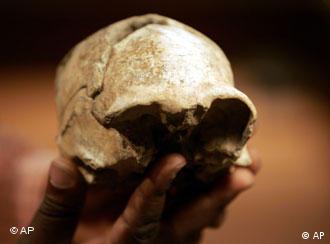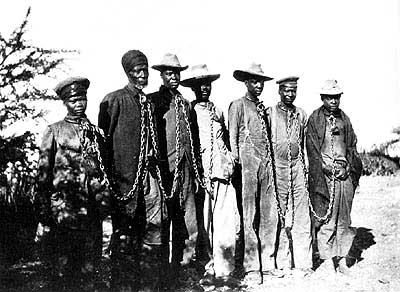
The Namibian government and specifically the Herero group want Germany to return over 40 skulls of indigenous Namibians, that they've held for about a century. Between 1904 and 1908 Germany, who was Namibia's colonial ruler at that time, launched a little-known genocide against the Hereros for launching an uprising against their colonial rule. The Germans defeated the Herero by driving them deeper and deeper into the desert and poisoning their water sources. It is estimated that between 24000-65000 Herero died.

Germany was recently forced to apologize for the genocide after a book was released exposing and documenting what had been kept under wraps for over a century. However, though Germany has been forced to face the now public historical accounts of the actually genocide, they are still keeping the skulls of Herero people they captured on display in German Universities. The Nambian government continues to demand there return, but the universities are arguing that they are part of their cultural heritage.
Immediately you wonder why the Germans even have the skulls in their possession in the first place. During the war, a German doctor, Eugen Fischer, requested the skulls of the dead in order to prove that African had a lower intellectual capacity than their European counterparts. So I beg to ask if Germany is keeping these skulls on display as proof of Fischer's claim or to remind themselves of their participation and support of one of the most exploitative historical periods.
For years the Herero have requested reparations for the abuse the ancestors suffered- this has gone on deaf ears. Germany's rejection of returning their ancestors remains is yet another slap in the face to a community that like others not only suffered centuries of colonial abuse, but almost had their whole community exterminated.

Does this not remind us of Saartjie"Sarah" Baartman, the Khoi woman who was paraded around Europe for years while her voluptous "beastly" body was put on display?
At the point of her death, Saartjie had been physically and sexually abused. Her brain, vulva, anus, and skeleton was put on display in a French museum and her remains were not repatriated back to South Africa for almost two hundred years!
Germany, please end the cycle of exploitation and dehumanization of African people and return the remains of the Herero people. Allow their souls to rest in peace.








